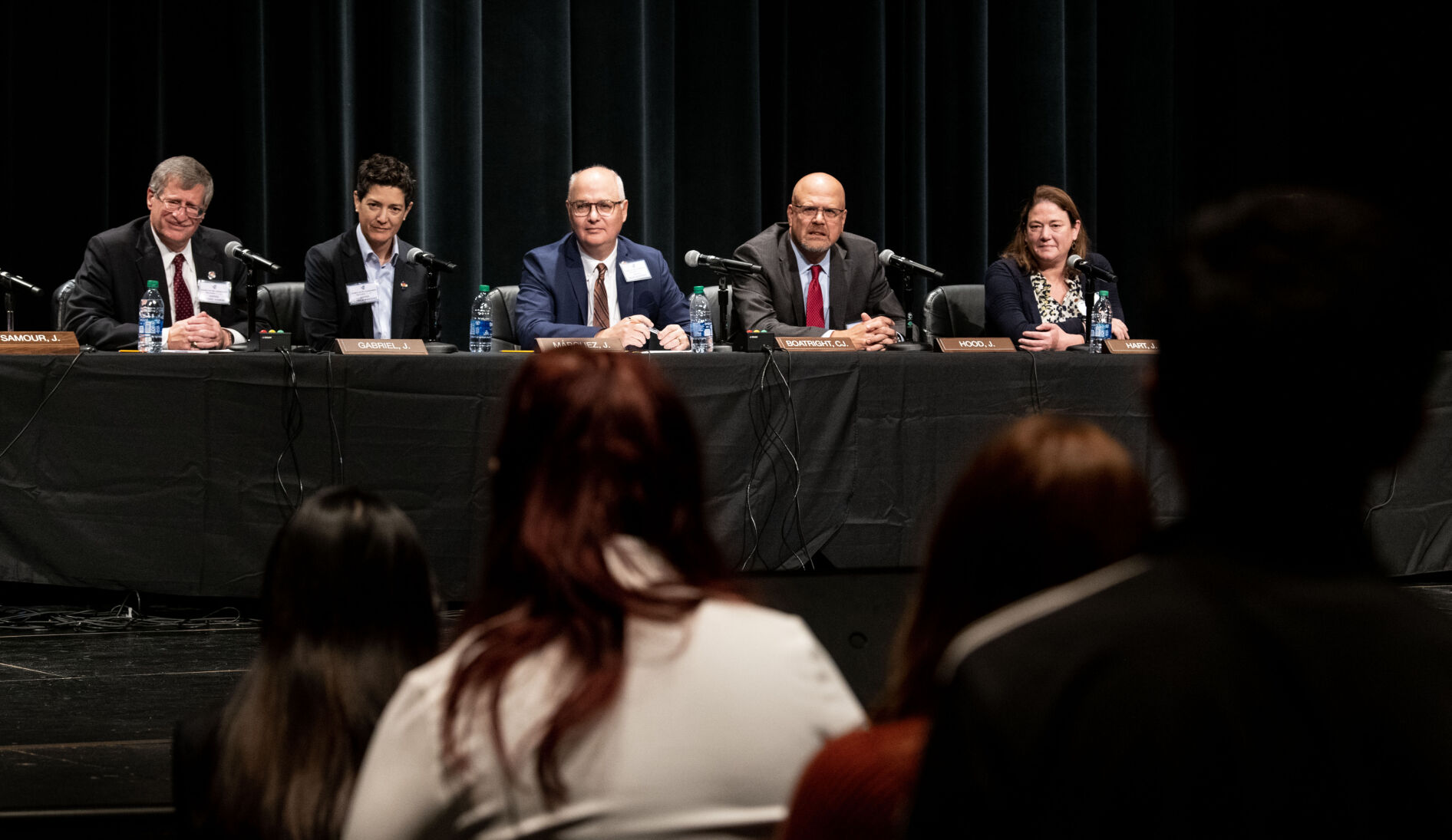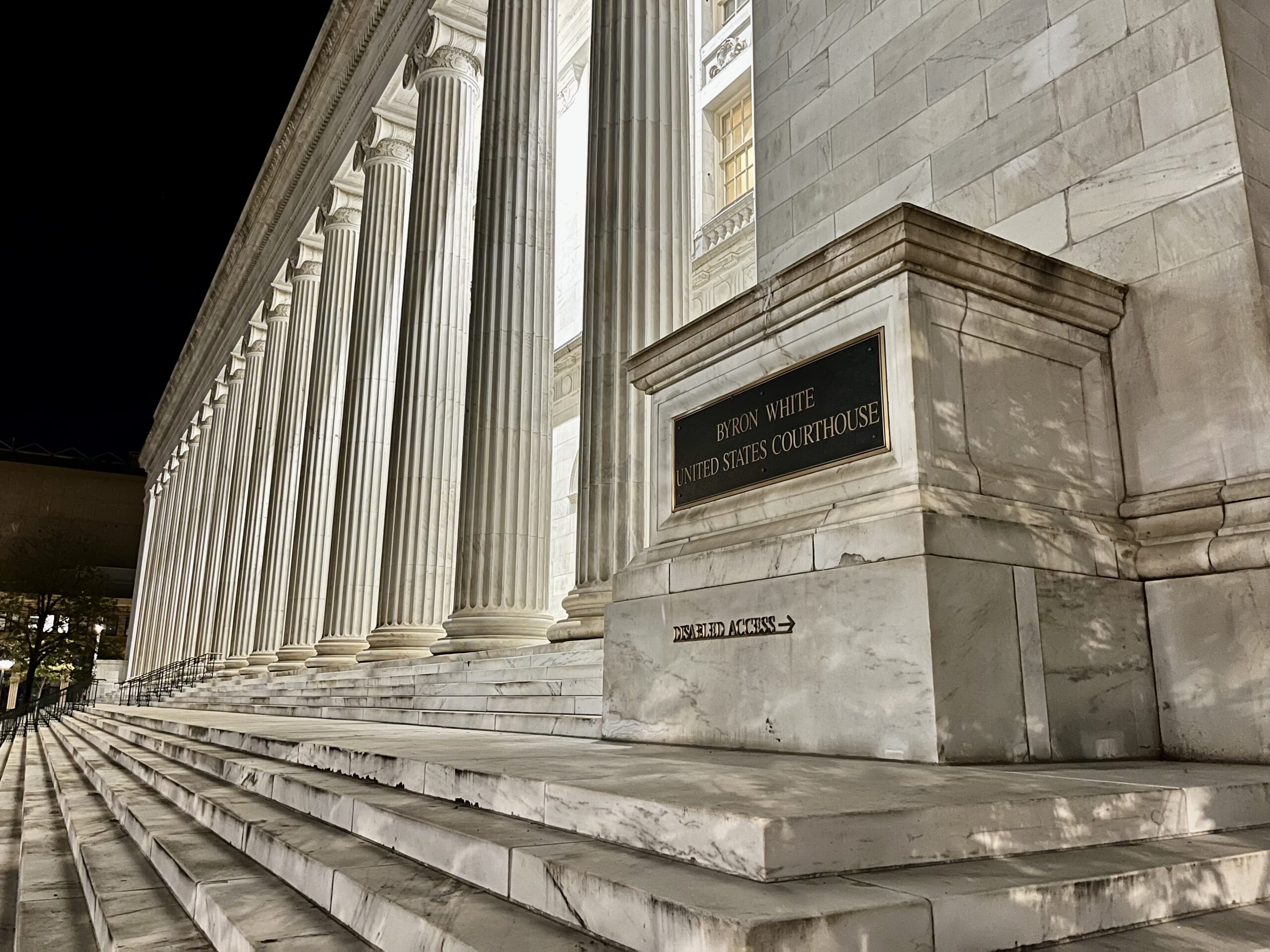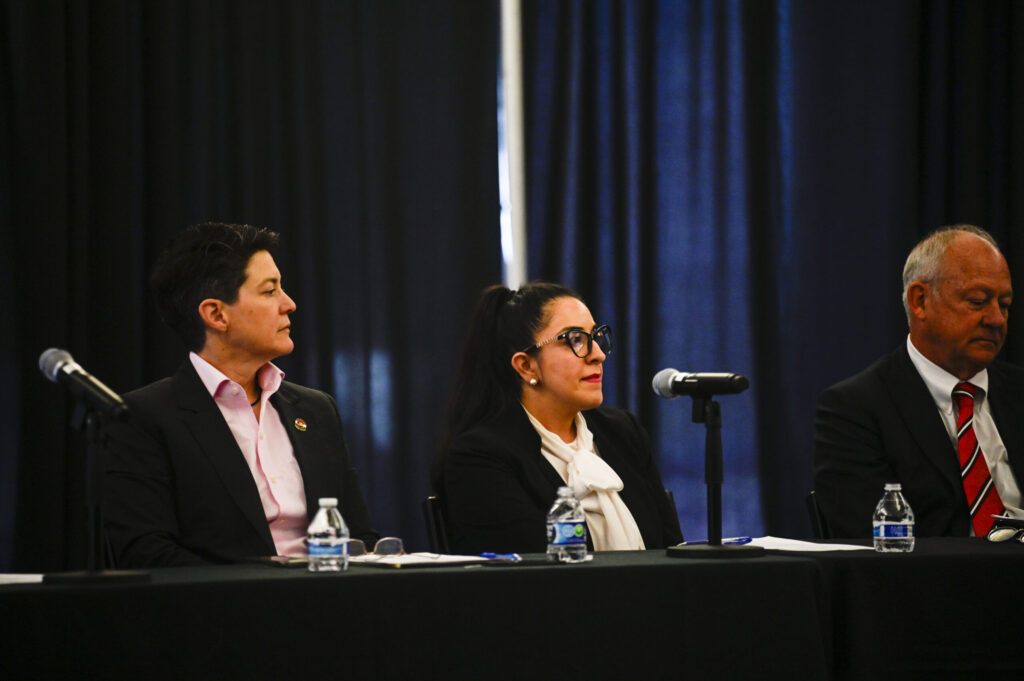Colorado Supreme Court to scrutinize parole requirements for juvenile sex offenders

The Colorado Supreme Court has agreed to answer whether the state law authorizing indefinite, potentially lifetime sentences for sex offenses makes room for the special considerations that must be given to juveniles who are tried as adults.
In a rare move, the court accepted the question not through the usual appeals process, but following a request from the U.S. Court of Appeals for the 10th Circuit, based in Denver. Colorado’s justices only agree once or twice per year to decide an issue referred to them by the federal court system.
Currently, the 10th Circuit is weighing whether the sentence of Omar Ricardo Godinez violates the Eighth Amendment’s prohibition on cruel and unusual punishment. A jury convicted Godinez in 2013 for his role in a pair of brutal rapes in Arapahoe County and he is serving 32 years to life in prison.
Although Godinez was 15 at the time he committed the offenses, prosecutors charged him as an adult. That meant Godinez fell under the Sex Offender Lifetime Supervision Act (SOLSA), a 1998 law generally requiring sentences up to life in prison for felony sex offenses. Defendants have the opportunity for parole at the low end of their sentencing range if they complete treatment.
Godinez has repeatedly argued such a system for adults does not comply with the U.S. Supreme Court’s specific instruction that juvenile defendants must have a “meaningful opportunity to obtain release” after the government considers their maturity and rehabilitation. Those factors do not appear in the text of SOLSA.
“We therefore respectfully ask you to determine whether SOLSA requires, permits, or prohibits parole boards from considering maturity and rehabilitation,” Judge Timothy M. Tymkovich wrote to the Colorado Supreme Court in an Oct. 20 order from the 10th Circuit. “Absent that clarification of state law, Mr. Godinez and similarly situated minors lack certainty as to whether their sentences comply with the Eighth Amendment.”
Jonathan D. Reppucci, the attorney representing Godinez, said the number of people directly affected by the Supreme Court and 10th Circuit’s ultimate decisions is likely small – juveniles who were tried and convicted of sex offenses as adults.
However, he believes that unless SOLSA specifically requires parole officials to factor in maturity and rehabilitation for that group, “then it runs afoul of the Eighth Amendment.”
Case: Godinez v. Williams
Decided: October 9, 2023
Jurisdiction: U.S. District Court for Colorado
Ruling: 3-0 to certify legal question
Judges: Timothy M. Tymkovich (author)
Carolyn B. McHugh
Nancy L. Moritz
Background: Graham v. Florida (2010)
Colorado lawmakers enacted SOLSA with the view that the “majority of persons who commit sex offenses” will remain dangerous unless they receive treatment. Because “some sex offenders” would respond well to treatment, SOLSA provided a means for defendants to obtain parole on otherwise lifetime sentences – with release decisions based specifically on a person’s progress in treatment, their threat to the community and their likelihood of reoffending.
In 2010, the U.S. Supreme Court decided Graham v. Florida, holding that juveniles in non-murder cases cannot be sentenced to life in prison without an opportunity to obtain release. Recognizing children are less mature than adults and have an “underdeveloped sense of responsibility,” the justices found the Eighth Amendment requires states to consider maturity and rehabilitation when making parole decisions for juvenile defendants – even if they ultimately decide against release.
After Godinez’s conviction, then-District Court Judge John L. Wheeler reviewed Godinez’s allegations of an unconstitutional sentence, noting he would be eligible for parole at age 38. Wheeler concluded SOLSA did not outright prohibit consideration of the Graham factors when parole officials decide whether to release Godinez.
The state’s Court of Appeals also upheld Godinez’s convictions. It noted it had to follow a Colorado Supreme Court decision from 2017 permitting lifetime sentences for juveniles when multiple convictions are involved. Judge Rebecca R. Freyre wrote separately to warn she did not believe the state Supreme Court was complying with Graham.

michael.karlik@coloradopolitics.com
After the Supreme Court declined to hear the case, Godinez turned to the federal system.
Last year, U.S. District Court Senior Judge R. Brooke Jackson agreed the Court of Appeals and Supreme Court’s positions violated Graham. Still, he concluded Godinez was not entitled to relief because, like Wheeler, he saw nothing preventing the parole board from considering maturity and rehabilitation.
“Mr. Godinez apparently wants a guarantee that he will be paroled in his lifetime. However, a state is not required to guarantee eventual freedom to a juvenile offender,” Jackson wrote.
On appeal to the 10th Circuit, a three-judge panel speculated SOLSA’s mandate to consider recidivism and a person’s dangerousness might address Godinez’s “rehabilitation.”
But “where’s the maturity aspect in SOLSA?” asked Judge Carolyn B. McHugh during oral arguments. “Which means, when they committed the crime they weren’t fully formed in the frontal lobe. Where do you see that?”
First Assistant Attorney General John T. Lee responded that maturity could be “baked into” a person’s progress in sex offender treatment.
The 10th Circuit panel opted to let the state Supreme Court answer whether Godinez was correct in believing SOLSA does not require the government to consider the factors the U.S. Supreme Court has said are mandatory for juveniles.
“To satisfy the Eighth Amendment, the SOLSA factors would need to encompass both maturity and rehabilitation in consideration of parole eligibility,” Tymkovich wrote.
The case is Godinez v. Williams.














